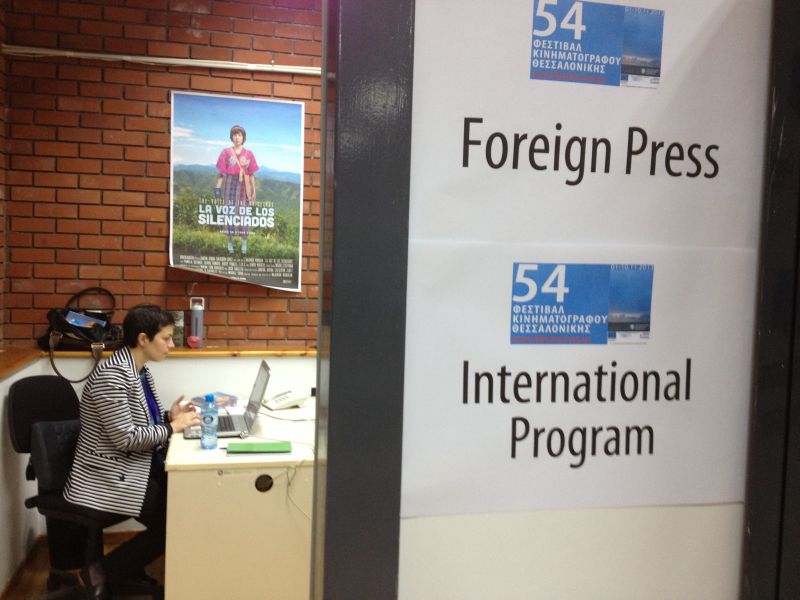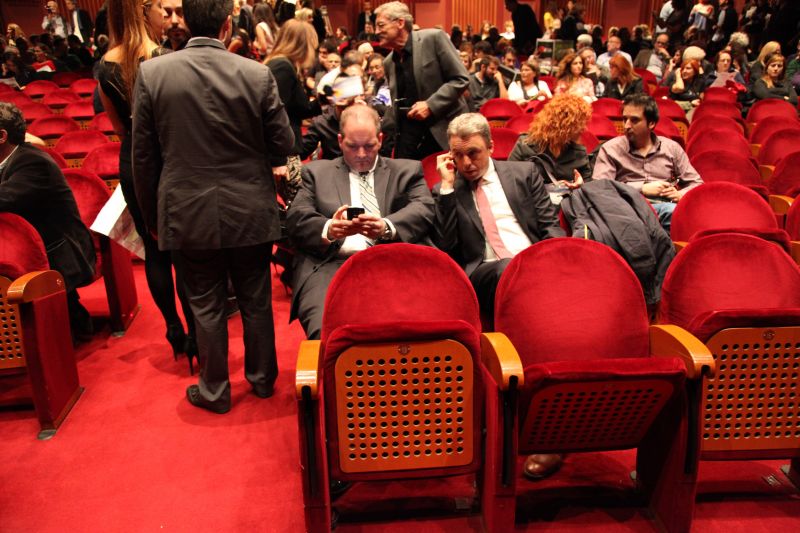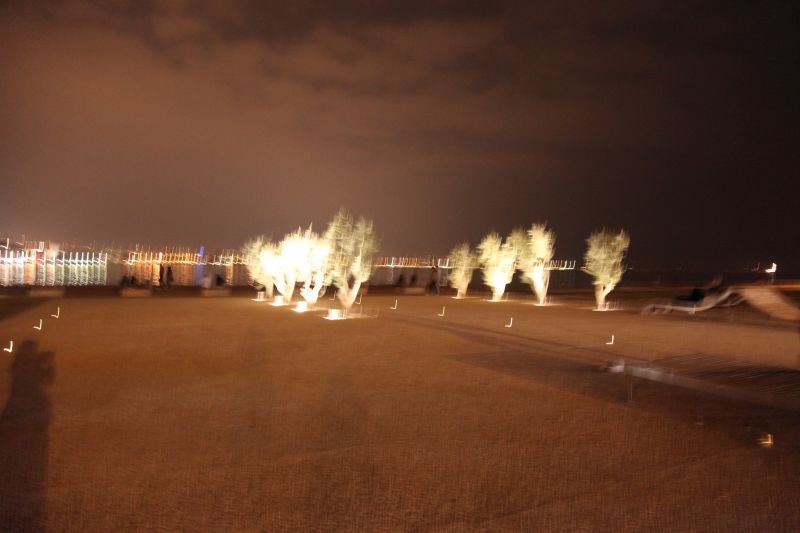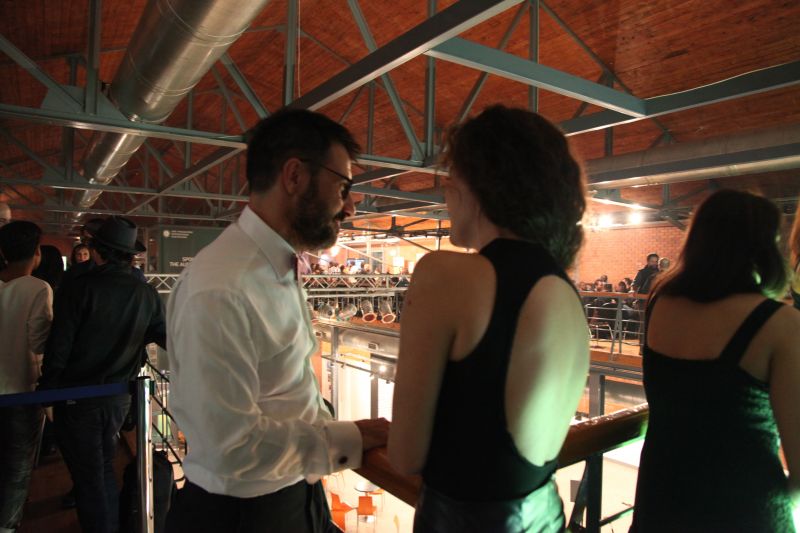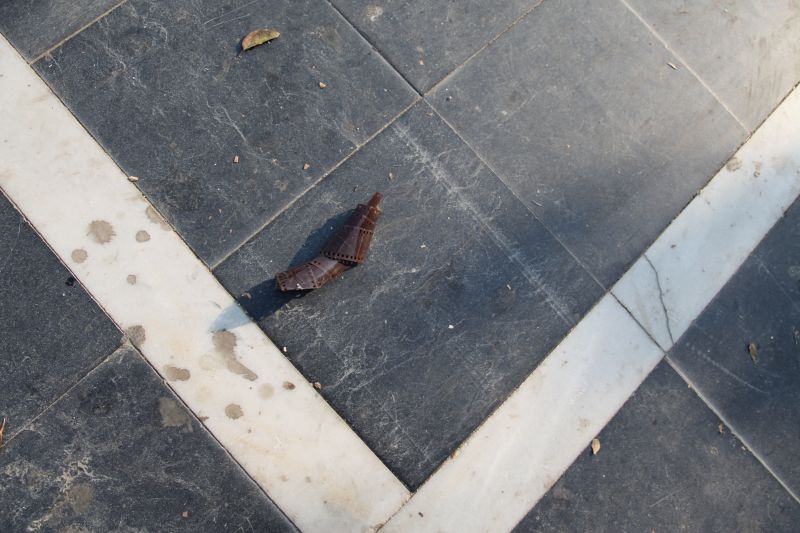|
|
||
|
Pro Tools
FILMFESTIVALS | 24/7 world wide coverageWelcome ! Enjoy the best of both worlds: Film & Festival News, exploring the best of the film festivals community. Launched in 1995, relentlessly connecting films to festivals, documenting and promoting festivals worldwide. Working on an upgrade soon. For collaboration, editorial contributions, or publicity, please send us an email here. User login |
Interview with Vahid Vakilifar at 53rd TIFF.
Interview with Vahid Vakilifar at 53rd TIFF. Persian filmmaker Vahid Vakilifar’s latest feature ‘Taboor’ (2012) ran in competition at the 53rd Thessaloniki Film Festival. This is his second feature; his first was ‘Gesher’ in 2010. As producer, screenwriter and director of ‘Taboor’, Vahid won a First Special Mention Award at TIFF. I interviewed him at the Electra Palace, Thessaloniki. Here is what he had to say.
ME: What does ‘Taboor’ mean in Farsi? VAHID: ‘Taboor’ means the naval of the earth in old mythology. ME: Does the name have anything to do with Iran being in the location of the Fertile Crescent and in a way at a figurative center of civilization? VAHID: No. It’s not Iran necessarily. This film is not specific geography. The focal point is the humanity, human beings and the contemporary world. ME: Would you call it a kind of experimental Sci-Fi? VAHID: It’s close to that genre. The film is picturing a time in the future. I was looking for the visual impact of the film. I wanted to make a film with the visual elements close to science fiction to depict the future. ME: Is there any kind of hidden message or symbolism you’d like to discuss or would you like to leave that solely for the viewer to interpret? VAHID: Yes, if you want I can speak about it. Basically, it’s about human beings trapped in the surrounding environment he has made by himself. My personal fear is the future we human beings are creating for ourselves. If we lose our humanity what is waiting for us? If we lose our connection as human beings is there any difference than us and other creatures? ME: Right. Like the cockroaches in your film. VAHID: Yes. This film is about abandonment and alienation, which is overpowering in human life and where this abandonment is taking us. ME: I have to say that I felt the film had a similar feeling that the film ‘The Shining’ (1980) by Stanley Kubrick, which also had an overwhelming tone of alienation in it. VAHID: Maybe this is my own feeling in the world that I am living in now. This is because you will get these fears in the film. ME: Yes, this feeling of alienation and abandonment screams loud and clear in your film. It’s incredible how in an era of the greatest communication technology ever, how alienated we still are; the paradox that we increasingly feel lonelier than ever while being more connected than ever. VAHID: Yes. Despite the fact that we have created all these large modes of connection in our daily life, but at the same time it is only virtual. So, we have this great connection but at the same time we are abandoned. I think that we are losing our personal identity. ME: I can’t speak about Iran but I can say in American culture people are isolated in that it is not a collective society but one of extreme individualism, which leaves people feeling increasingly abandoned. I can imagine on the other extreme, a similar isolation is experienced in cultures that live only for the collective whole and are not permitted an individual voice. VAHID: There are different parameters in Iran. Obviously one of the parameters is the Iranian government. But I think it’s not all this. Iran is a traditional society, which is going through modernism and it’s a contradiction in the society. This is a normal process, which is happening everywhere. There is a gap in between and that is why one of our issues is modernism and the other is traditionalism. So there is no big difference really. We are also living in the virtual world like Americans but our reality is different than American. The political and economical situation are effecting the culture as well, and this is very important because in the end you will see how this is affecting all human beings in the society. In Iran, we are a traditional society going through this phase of modernism, connected to this world and the virtual world with politics and tradition affecting everyone. I believe that in the end, as human beings, we might also all have the same destiny. ME: Can you speak about your main actor, Mohammad Rabbanipour? He has an incredible presence in your film. VAHID: I was looking for a character without looking for the gender or sex of the personality. I was looking for someone who could convey this message who could portray the reality of man in his society. It’s not about man or woman but a portrait of humanity in general. ME: What is your next project? VAHID: I have two stories. I’m looking for the producer. I was the producer of ‘Taboor’ and it is difficult for me now so I’m looking for a producer. It’s very difficult but I am optimistic. -Interview by Vanessa McMahon
‘Taboor’ summary: “A man wakes up in a room covered entirely in tin foil. A bed, a desk and a coat rack are all in all his home’s decorative elements. The man gets up, puts on a jump-suit (made also of tin foil), wears his clothes on top and walks out the door. What’s this room? Why is the protagonist wearing that uniform? Where is he driving to with his bike? In which city is he in? What year? Taboor is steeped in such a mysterious fog that it takes on a sci-fi quality. Tehran becomes the timeless setting of a Lynchian story that hypnotizes with its rhythm and evocative music score. Corridors, tunnels and staircases pull the protagonist onto a long and labyrinthine course. His loneliness might be easy to hide in the darkness, within which he moves with ease, what he really pines for though is the warmth of the light.” – Anonymous.
photo by Vanessa McMahon at TIFF 2012
20.11.2012 | Thessaloniki International Film Festival's blog Cat. : Apostrophe English spelling Entertainment Entertainment Human Interest Human Interest Interview with Vahid Vakilifar at 53rd TIFF. Iran Iranian government Linguistics Mohammad Rabbanipour Orthography Punctuation Stanley Kubrick Tehran the 53rd Thessaloniki Film Festival the 53rd Thessaloniki Film Festival Vahid Vahid Vakilifar Vanessa McMahon Interviews
|
LinksThe Bulletin Board > The Bulletin Board Blog Following News Interview with IFTA Chairman (AFM)
Interview with Cannes Marche du Film Director
Filmfestivals.com dailies live coverage from > Live from India
Useful links for the indies: > Big files transfer
+ SUBSCRIBE to the weekly Newsletter Deals+ Special offers and discounts from filmfestivals.com Selected fun offers
> Bonus Casino
User imagesAbout Thessaloniki International Film Festival Industry: CROSSROADS Co-Production Forum,AGORA, script-development BALKAN FUND. Competition for directors with 1st or 2nd films. Golden Alexander Prize 37.000 € Coverage by Vanessa McMahon, Laurie Gordon View my profile Send me a message The EditorUser contributions |



















 Scene from 'Taboor' (2012)
Scene from 'Taboor' (2012)

